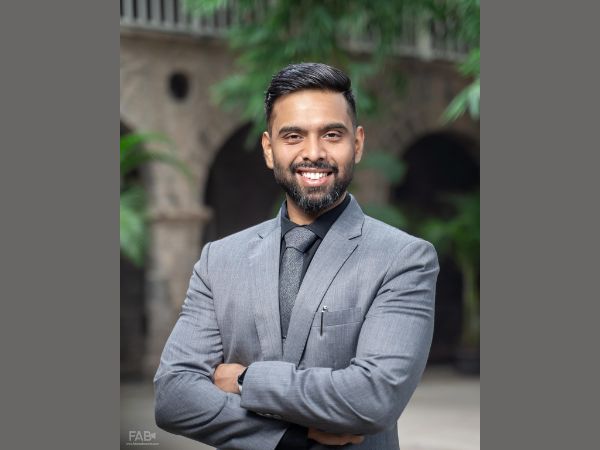SMPL
New Delhi [India], June 5: As the NEET UG 2025 results approach, Indian students face tough decisions regarding medical education options amid limited government seats and high private college fees. In this context, the Philippines is emerging as a key destination for Indian students seeking MBBS degrees abroad.
In a recent move aimed at promoting tourism, the Philippines government announced visa-free entry for Indian nationals for stays of up to 14 days. While primarily intended to boost tourism, this new policy has presented an unexpected advantage for Indian students and their families considering medical education in the country. The visa-free window allows them to visit campuses, interact with faculty, understand the academic environment, and evaluate infrastructure--without the burden of undergoing a lengthy visa process.
"Being able to see and feel where you're going to study -- that changes everything for families making this important decision," says Kadwin Pillai, Managing Director of Transworld Educare and Director of Kings International Medical Academy. "The Philippines is not just welcoming students; it's giving them the confidence to choose wisely."
The Philippines has steadily gained popularity among Indian medical aspirants due to its unique advantages. One of the key draws is that the medium of instruction is English, eliminating the language barriers that often deter students from considering non-English-speaking countries. Additionally, the medical curriculum in the Philippines is based on the US education system, which offers an international standard of learning and exposure.
Another significant advantage is the clinical training that students receive during their course. The Philippines has a tropical climate and disease patterns that are similar to those in India. This means Indian students studying there are exposed to medical conditions they are likely to encounter in their future practice back home, providing them with valuable and relevant clinical experience.
Cost is another crucial factor influencing the decision. Studying MBBS in the Philippines is substantially more affordable compared to private medical colleges in India or even other popular international destinations like the USA, UK, or Australia. Tuition fees, living expenses, and other costs are comparatively lower, making it an accessible option for a broader segment of Indian students.
The country has also taken progressive steps to reform its medical education system. Recent updates to the Philippines Medical Act now allow international graduates from CHED-accredited (Commission on Higher Education) institutions to register and practice medicine in the country after completing their internship. These reforms are seen as a step forward in aligning the country's medical education with international standards and enhancing its global appeal.
For Indian students, this development is particularly important. The updated policy is in line with the Indian Medical Commission's framework, which means students can choose to either pursue a career in the Philippines or return to India and appear for the Foreign Medical Graduate Examination (FMGE) or NEXT, as required by Indian regulatory bodies.
Industry experts suggest that the visa exemption comes at a crucial time. With over 20 lakh students appearing for NEET UG annually and only about one lakh government MBBS seats available, many students inevitably look toward foreign universities. The ability to physically visit institutions and make informed decisions before committing to a multi-year course is expected to positively impact the decision-making process.
Currently, several CHED-accredited medical institutions in the Philippines are actively enrolling Indian students. In response to increasing demand, many universities have started offering additional support services, including Indian food, academic counselling, and preparation guidance for Indian licensing exams. These initiatives are aimed at easing the transition for Indian students and creating a more supportive academic environment.
As student interest grows, the Philippines continues to strengthen its position as a medical education hub in Asia through ongoing policy reforms, improved accessibility, and cultural openness. The country's friendly diplomatic ties with India further support this dynamic, making it easier for students and institutions to collaborate across borders.
As Indian students prepare for their next steps after NEET UG 2025, the Philippines stands out as a practical and accessible option for those seeking a quality medical education abroad offering a compelling mix of affordability, academic credibility, and supportive policy frameworks.
(ADVERTORIAL DISCLAIMER: The above press release has been provided by SMPL. ANI will not be responsible in any way for the content of the same)

